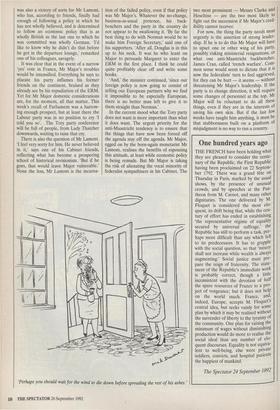One hundred years ago
THE FRENCH have been holding what they are pleased to consider the cente- nary of the Republic, the First Republic having been proclaimed on 22 Septem- ber 1792. There was a grand fete on Thursday in Paris, marked by the usual shows, by the presence of unusual crowds, and by speeches at the Pan- theon from M. Carnot, and many other dignitaries. The one delivered by M. Floquet is considered the most elo- quent, its drift being that, while the cen- tury of effort has ended in establishing `the representative regime of equality secured by universal suffrage,' the Republic has still to perform a task, per- haps more difficult than any which fell to its predecessors. It has to grapple with the social question, so that `misery shall not increase while wealth is always augmenting.' Social justice must pre- pare the reign of fraternity. The state- ment of the Republic's immediate work is probably correct, though a little inconsistent with the devotion of half the spare resources of France to a pro- ject of vengeance; but it does not help on the world much. France, and, indeed, Europe, accepts M. Floquees central idea, but seeks vainly for some plan by which it may be realised without the surrender of liberty to the tyranny of the community. One plan for raising the minimum of wages without diminishing production would do more to realise the social ideal than any number of elo- quent discourses. Equality is not equiva- lent to well-being, else were private soldiers, convicts, and hospital patients the happiest of mankind.
The Spectator 24 September 1892


































































 Previous page
Previous page